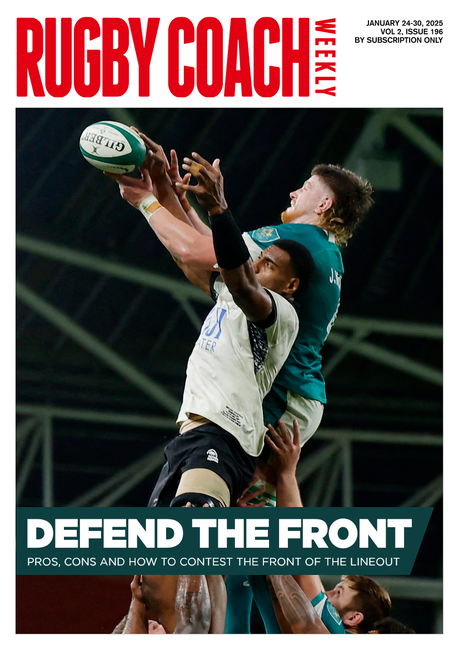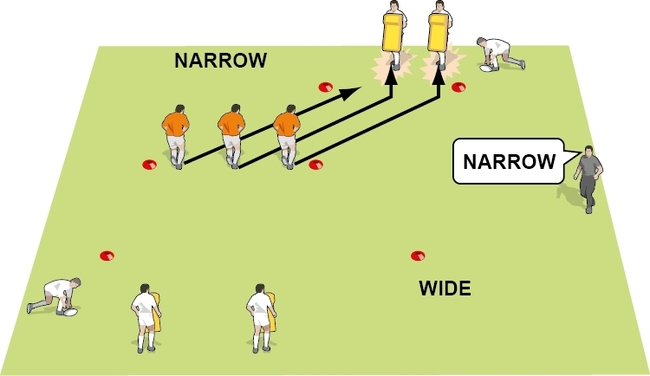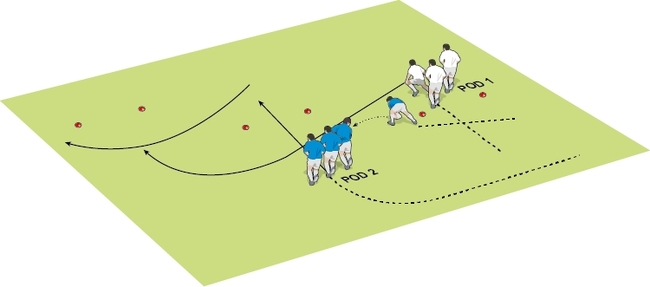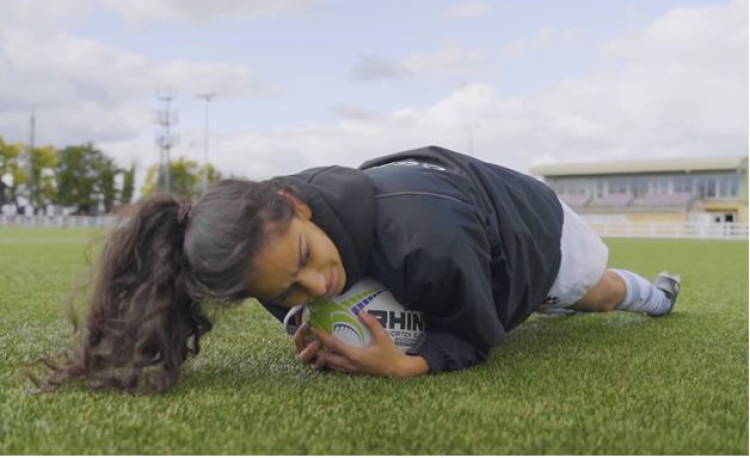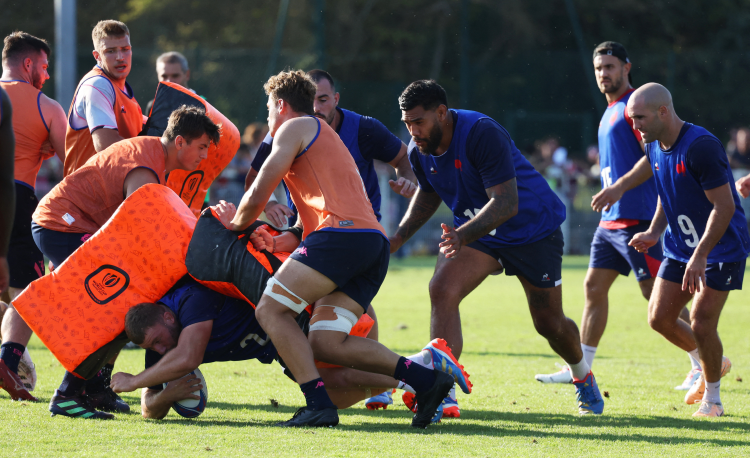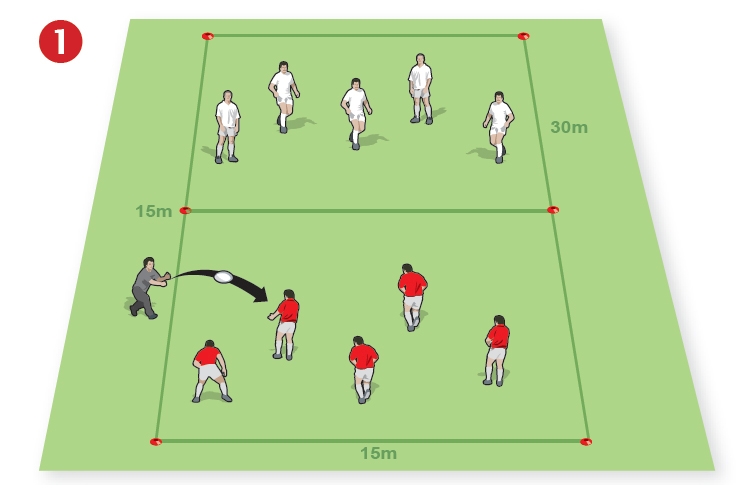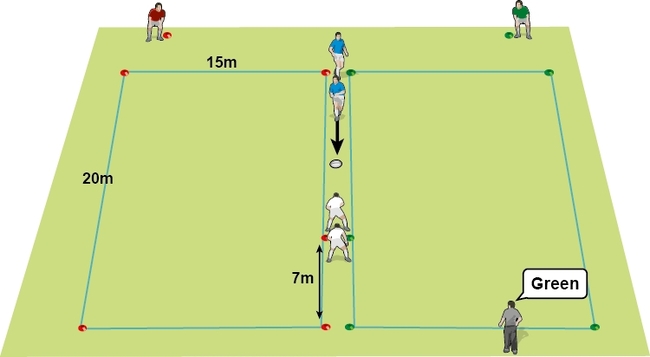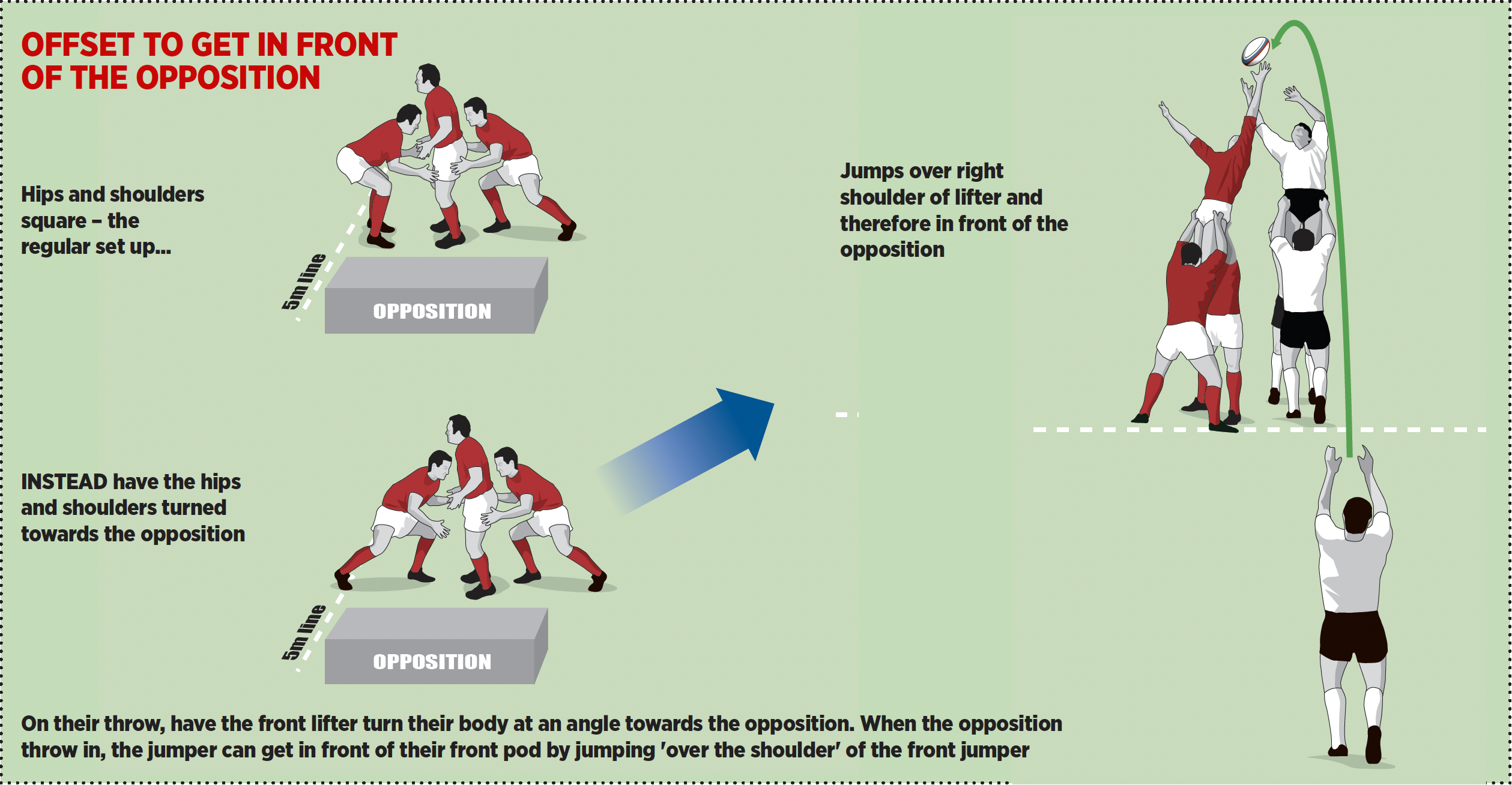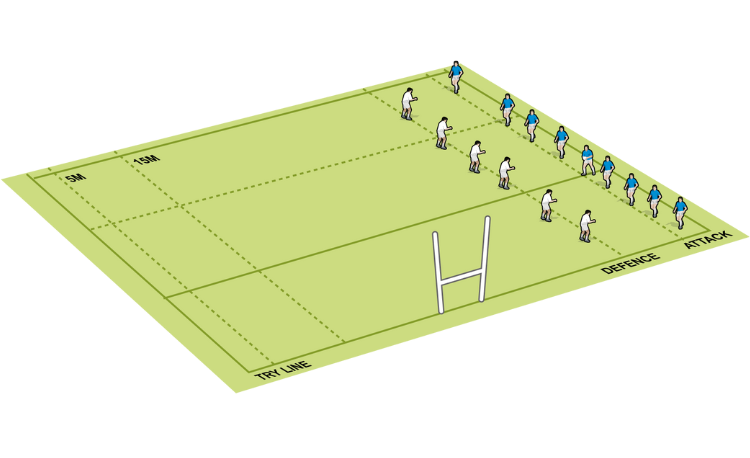The 5Fs for ball carriers
The battle that takes place after the tackle is one of the most underappreciated areas of the game. The 5 F’s give you some ideas as to what to develop in players to gain an attacking advantage in these scenarios.
In many instances, we see the attacker as a passive participant in the tackle until they get to the ground. However, in a number of games, it’s frequently the actions of the attacker in these scenarios that can make a difference to the result.
1 FOOTWORK
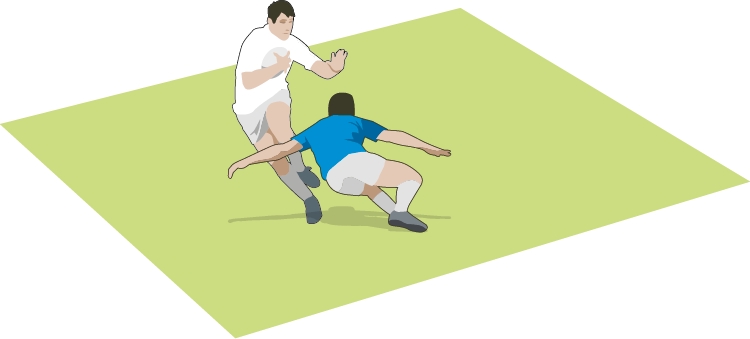
We want the attacking player to use footwork in the tackle to attack the weaker space of the tackler’s shoulders. That is, if they lead with the left, we want to attack the space on the right or to avoid contact altogether. This will give us better control in the scenario.
2 FEND
We want attackers to look to fend the leading arm of the tackler away, especially if the tackler has a ‘long armed’ tackling technique. This should reduce the effectiveness of the tackle and give the attacker an advantage.
3 FIGHT
Once contact has been made, we don’t want the attacker to simply fall to the ground. We want to see the attacker use a leg drive to gain extra go forward and drop their body height to make completing the tackle more difficult.
4 FRONT

We want the attacker to aim to "score a try" as they head towards the ground to generate extra space away from defenders and to resist being pushed back, which turning into the tackle can often do.
5 FINISH

Finish in the best position. Once the attacker has hit the ground we want them to fight into a position tha enables them to get the ball back towards their own team quickly. Whether this is a "long and strong" position or a "prawn-shaped" position comes down to the preference of a coach.
So next time you’re looking at players being tackled, ensure they aren’t just along for the ride. They need to use the 5Fs to make sure they are active, making great targets for their teammates.
Related Files
Newsletter Sign Up
Coaches Testimonials

Gerald Kearney, Downtown Las Vegas Soccer Club

Paul Butler, Florida, USA

Rick Shields, Springboro, USA

Tony Green, Pierrefonds Titans, Quebec, Canada
Subscribe Today
Be a more effective, more successful rugby coach
In a recent survey 89% of subscribers said Rugby Coach Weekly makes them more confident, 91% said Rugby Coach Weekly makes them a more effective coach and 93% said Rugby Coach Weekly makes them more inspired.
Get Weekly Inspiration
All the latest techniques and approaches
Rugby Coach Weekly offers proven and easy to use rugby drills, coaching sessions, practice plans, small-sided games, warm-ups, training tips and advice.
We've been at the cutting edge of rugby coaching since we launched in 2005, creating resources for the grassroots youth coach, following best practice from around the world and insights from the professional game.

